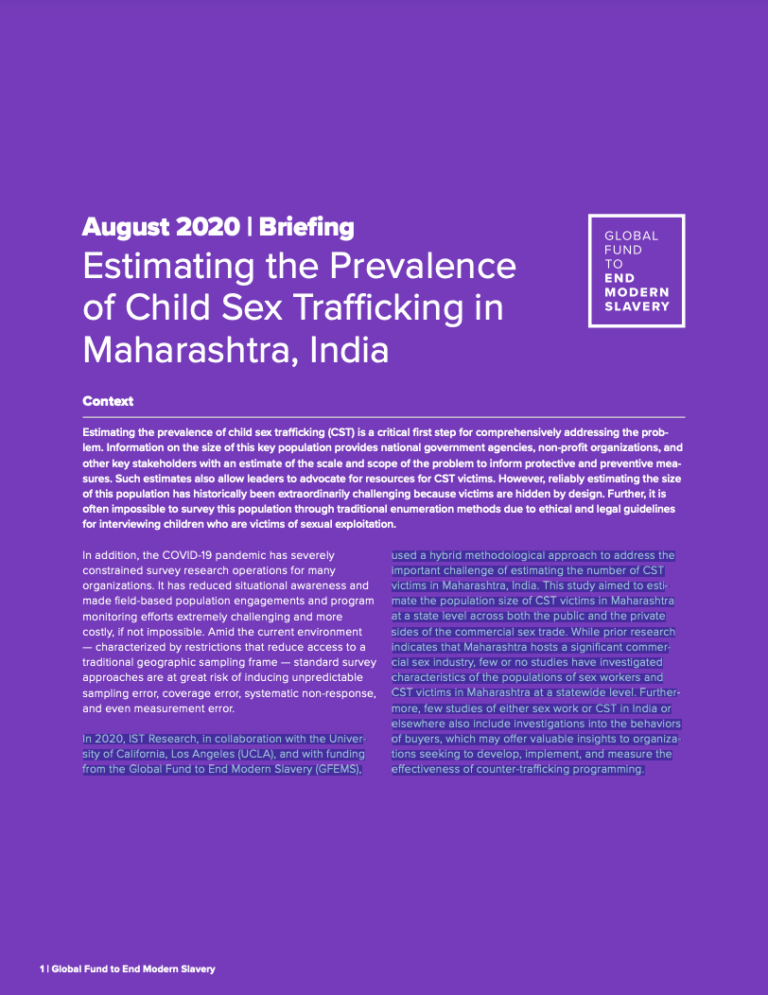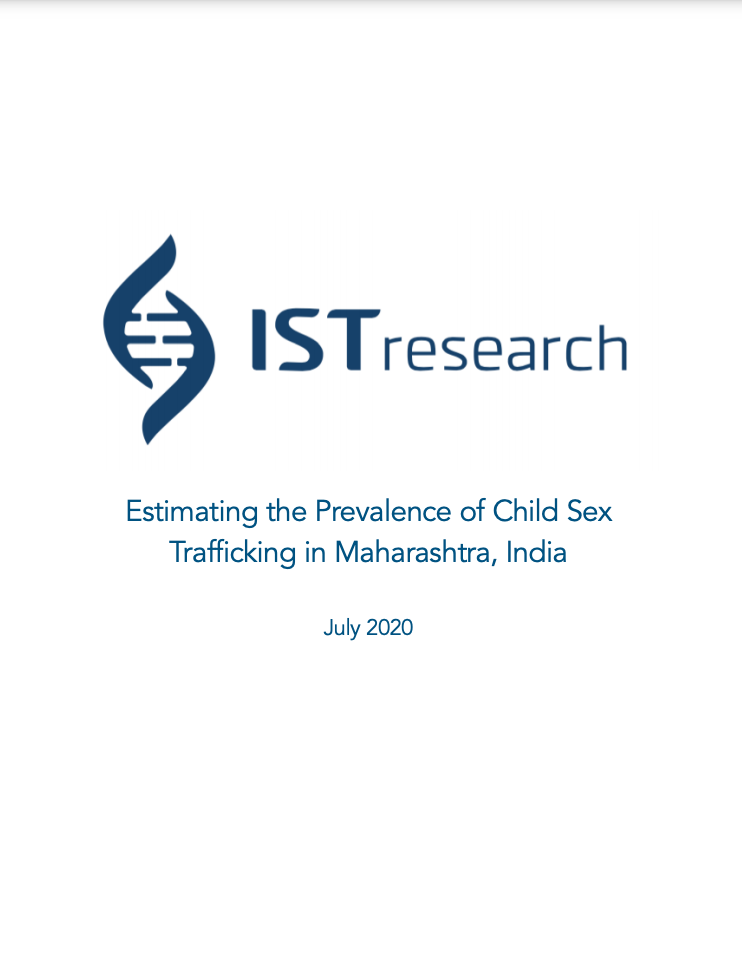Estimating the prevalence of child sex trafficking (CST) is a critical first step for comprehensively addressing the problem. Information on the size of this key population provides national government agencies, non-profit organizations, and other key stakeholders with an estimate of the scale and scope of the problem to inform protective and preventive measures. Such estimates also allow leaders to advocate for resources for CST victims. However, reliably estimating the size of this population has historically been extraordinarily challenging because victims are hidden by design. Further, it is often impossible to survey this population through traditional enumeration methods due to ethical and legal guidelines for interviewing children who are victims of sexual exploitation.
In addition, the COVID-19 pandemic has severely constrained survey research operations for many organizations. It has reduced situational awareness and made field-based population engagements and program monitoring efforts extremely challenging and more costly, if not impossible. Amid the current environment — characterized by restrictions that reduce access to a traditional geographic sampling frame — standard survey approaches are at great risk of inducing unpredictable sampling error, coverage error, systematic non-response, and even measurement error.
In 2020, IST Research, in collaboration with the University of California, Los Angeles (UCLA), and with funding from the Global Fund to End Modern Slavery (GFEMS), used a hybrid methodological approach to address the important challenge of estimating the number of CST victims in Maharashtra, India. This study aimed to estimate the population size of CST victims in Maharashtra at a state level across both the public and the private sides of the commercial sex trade. While prior research indicates that Maharashtra hosts a significant commercial sex industry, few or no studies have investigated characteristics of the populations of sex workers and CST victims in Maharashtra at a statewide level. Furthermore, few studies of either sex work or CST in India or elsewhere also include investigations into the behaviors of buyers, which may offer valuable insights to organizations seeking to develop, implement, and measure the effectiveness of counter-trafficking programming.


